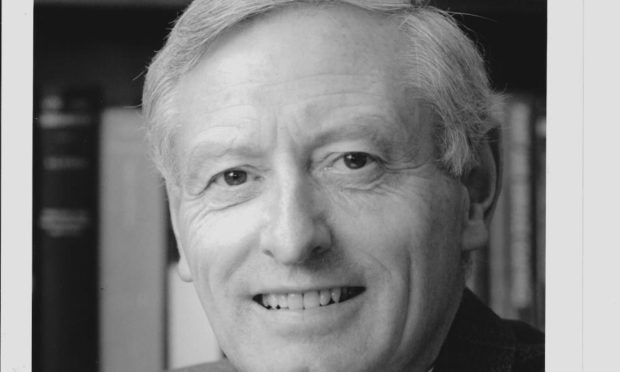From professional footballer to vice-principal at Aberdeen University, Alex Forrester had a long and varied career.
Born in Fife in 1935, he gained many admirers for his ability with a ball but also had an aptitude for science.
A natural at any ball game, his winters were devoted to football and his summers to cricket.
He graduated in chemistry in 1958 from Heriot Watt College – now University – he played for Partick Thistle.
After working as a chemistry lecturer at Paisley Tech, he made the move to the Granite City to study for a PhD.
He completed that and went to join the Aberdeen University staff as an assistant lecturer in organic chemistry, he progressed steadily through the ranks to become the senior professor and head of the chemistry department in 1987.
Continuing his sporting career for many years in the Highland League and as a regular starter in cricket for the Aberdeenshire team, he was described by friends as a skilful and hard-working player.
He was later appointed vice principal for the development and commercialisation of the university’s research base.
Mr Forrester was awarded an OBE for services to science and education in the 1997 New Year Honours List, and he published more than 120 research papers and three books.
His colleague and friend Geoff McQuillan said: “Alex’s approach to his work mirrored his attitude on the sports field. Although widely known and respected, initially in Scotland and the UK and increasingly internationally, he was not a natural networker or glad hander.
“He preferred rather to be judged on his output, which was invariably meticulously researched, carefully produced and intrinsically authoritative.”
His commitment led him to usher in new generations of scientists, with many of his students having gone on to have successful careers of their own.
In 2015 he was diagnosed with vascular dementia, something that he was determined wasn’t going to get in the way of his active lifestyle.
With the support of his wife Myrna, he remained as active as he could for as long as possible but the onset of Parkinson’s disease in 2018 led to worsening problems with balance and mobility.
Not just a influential scientist and dedicated sportsman he was also a loving father-of-four.
Daughters Deborah and Melanie work as a veterinarian and dentist respectively while son Gregor is a lawyer.
Passing on his sporting abilities his daughter Stephanie is a former Olympic triathlete and lecturer at Loughborough University.
